Fermented Infant Nutrition, Cultivated Fish Frenzy, and APAC's Novel Food Appetite
Also: Are food investors climate investors?
Hi, welcome to issue #60 of the weekly newsletter. Thanks for being here!
Here’s my favourite quote that I came across this week:
“Our team wants to empower women and put an end to the tiredness and fatigue caused by iron deficiency. I refuse to believe that being a woman should mean constantly feeling drained. I am determined to provide a solution that truly works.”
- Nélida Leiva Eriksson, founder and CEO of Ironic Biotech
Let’s dig into the latest developments in biotech-enabled food innovation! 🍽
BIO BUZZ
🍼 The Live Green Co. introduced a human breast milk fat analog and a postbiotic using precision fermentation
TLGC operates in the US, Chile, Singapore, and India (where its precision fermentation R&D facilities are located). The startup uses a proprietary AI and machine learning platform, Charaka, to find alternatives to animal, artificial, or ultra-processed ingredients.
GreenTAGs mimic the nutritional profile of human milk fat (OPO). It avoids the drawbacks of traditional vegetable oil-based infant formulas. This improves infants' nutrient absorption, neurodevelopment, immunity, and overall well-being.
GutRevyv is developed in-house with postbiotic strains that are said to surpass the benefits of current solutions. It offers a safer, more stable, and cost-effective alternative for food products and nutraceuticals.
Source: Green Queen
🇩🇪 Bluu Seafood opened ‘Europe’s first’ cultivated seafood pilot plant in preparation for market entry
The German startup's new fermenters have a capacity of 65 litres and are expandable to 2,000 litres. This allows for cultivating muscle, fat, and connective tissue cells from Atlantic salmon and rainbow trout.
Bluu Seafood's fish products, such as fish sticks and fish balls, are GMO-free and free from heavy metals and microplastics. They have a taste, nutritional content, and cooking behaviour similar to conventional products.
The new facilities will help prepare for market entry, with the goal of offering cultivated fish at wholesale prices in as little as 3 years. Bluu Seafood expects its product to be approved in Singapore in early 2025.
Source: Cell Base
🐟 Atlantic Fish Co. developed the ‘world's first’ cultivated black sea bass
The US-based cultivated seafood startup developed the prototype in partnership with the North Carolina Food Innovation Lab (NCFIL). It uses proprietary technology for developing high-performing fish cell lines that can grow in liquid suspension.
The startup held a product tasting at NCFIL’s facility in North Carolina. CEO Doug Grant expressed satisfaction with the taste of the product, comparing it favourably to conventional fish.
Atlantic Fish Co. aims to provide sustainable, ethical seafood free of mercury, antibiotics, or microplastics. It's now working on lowering the cost of the cultivated fish product.
Source: Cell Base
😋 Quest Meat’s first team cook-up and tasting of microcarrier replacement showed positive results
The UK-based B2B company has developed a new type of edible microcarrier designed for the cultivated meat industry. It’s said to be more sustainable and scalable than traditional pharmaceutical-grade microcarriers.
During their testing phase, the microcarriers performed well in a cultivated meat product consisting only of cells, microcarriers, and rapeseed oil. The 100% animal-free beads are designed to improve visual and sensory qualities of cultivated meat, contributing to its taste and texture.
The tasting notes included positive feedback such as the product being "crispy on the outside" with an "umami flavour" and smelling "like meat."
Source: vegconomist
🇮🇱 E-Fishient Protein has developed the cell line of Tilapia to advance cultivated fish production
The Israeli startup is producing muscle and fat cells of Tilapia, intending to establish a genetic cell bank.
EFISHient Protein has already created a prototype of a cultivated tilapia fillet. They achieved this goal ahead of the planned schedule last year.
“Completing the Tilapia cell line development showcases our dedication to accelerating sustainable protein solutions, ensuring future generations can enjoy nutritious and ethical fish products,” said Dana Levin, CEO.
Source: vegconomist
🇹🇭🇮🇱 Aleph Farms' CEO Didier Toubia on why the Israeli cultivated meat leader decided to set up a production facility in Thailand
Market research indicates a 97% willingness in Thailand to try cultivated meat, though Aleph Farms's CEO, Didier Toubia, added, "It sounds too high. We need to [re]do it."
Thailand's higher beef prices due to reliance on imports, coupled with lower production and utility costs, provide an economically advantageous environment for Aleph Farms. This setup can potentially lead to maximised gross margins and faster breakeven.
The absence of significant lobbyists, unlike in the US or Europe, could simplify regulatory processes and operational setup in Thailand. The dynamic culinary scene in Thailand is also seen as beneficial for the introduction of new products.
Source: Business for Good Podcast
MACRO STUFF
🌏 APAC ‘more open-minded’ to novel foods, says Vow’s CEO George Peppou
ICYMI: Last week Vow launched its first cultivated meat product following regulatory approval in Singapore.
In 2020, Singapore's SFA became the first regulator to approve cultivated meat, setting a precedent for countries like the US and Israel. Singapore is a food tech innovation hub, with companies like Meatable and Vital Meats also seeking regulatory approval for cultivated meat.
Consumer acceptance of cultivated meat varies by region. There’s higher acceptance in APAC countries like India and Singapore compared to the US and Europe.
“Asia-Pacific, in general, is much more open-minded to novel food from a consumer standpoint […] At a regulatory level, it’s much less politicised than in the EU and US,” said George
Source: Green Queen
📊 Insights revealed varying willingness to try cultivated meat among consumers worldwide
Source: Cultivated X
🤔 Should you use centrifugation or microfiltration for downstream recovery?
Precision fermentation involves producing novel products in a complex fermentation broth, which requires downstream recovery systems for product extraction, considering quality and cost.
Centrifugation can handle high biomass concentrations and achieve high underflow solids concentrations. However, it may not ensure complete biomass removal and typically has lower product recovery rates (75-80%).
Microfiltration, including tubular and spiral-wound technologies, can ensure complete GMO removal with a 0.1-micron pore size and achieve high product recovery rates (>95%). However, it may have higher capital and operating costs.
Source: Liberation Labs
BIO BUCKS
🇨🇦 🪐 Maia Farms and Ecoation won the grand prize in the Deep Space Food Challenge for a system that produces 700kg of fresh food annually
The two Vancouver-based startups' prize-winning modular CANGrow system is the size of a wardrobe. It uses hydroponics, aeroponics, and biomass fermentation to grow crops like tomatoes, strawberries, lettuce, and mycelium with minimal inputs and waste.
Maia Farms is developing a biomass fermentation platform for mycoprotein with significantly higher yields than other strains. They are using an edible mushroom variety and agricultural byproducts as feedstocks.
The mycoprotein ingredient, with 66% protein content, is being tested by Canadian food manufacturers. This includes alt-meat maker Big Mountain Foods, for use in various food products.
Source: AgFunder
🧬 Ginkgo Bioworks acquired AgBiome's platform assets
This includes a microbial strain library with over 115,000 fully sequenced and isolated strains and over 500 million unique gene sequences. It also includes other functional data and development pipelines.
These assets will be integrated into Ginkgo Ag Biologicals Services, which was established by acquiring a Bayer R&D facility in 2022. This integration is expected to improve Ginkgo’s unified metagenomics database and ag biological discovery platforms.
The acquisition includes a robust product concept pipeline with several product candidates validated in greenhouses or fields. This provides a foundation for Ginkgo’s future development and AI model applications in R&D.
Source: Ginkgo Bioworks
SOCIAL FEAST
💰 Are food investors climate investors?
The food sector is a significant contributor to climate change, accounting for >25% of global GHG emissions. Additionally, it uses 50% of habitable land and 70% of fresh water and is a major source of ocean and water pollution.
Food production practices are directly linked to biodiversity loss, notably impacting mammal and bird populations.
Investing in sustainable and alt protein sources directly influences climate change mitigation efforts. It inherently involves considerations of how food production impacts the environment.
Source: Steve Molino
🦠 Let’s replace soy-based animal feed with microbial protein
Source: Tomas Linder
💬 We need to rethink risk communication in novel food to build consumer trust
Food neophobia is the fear of trying new foods. It’s worsened by foods produced using new technologies that are difficult for non-scientists to understand.
There's a significant knowledge gap regarding food production and nutrition. To bridge this gap, governments and educators should play a role in educating the public, starting from early childhood.
Novel food producers need to communicate effectively. They should use language that is aligned, transparent, scientifically correct, and understandable to the average consumer, while also sounding appealing.
Source: Mirte Gosker
FREE WEBINAR
🎥 Decoding recent cultivated meat regulatory progress in APAC
The webinar will cover:
Regulatory developments in South Korea, Singapore, and Australia and what they mean for the cultivated meat industry.
New challenges and opportunities in light of these recent developments.
Regulatory pathways for further development of the industry.
MORE ON BETTER BIOECONOMY
🌏 APAC's March 2024: 10 noteworthy food biotech advancements
Singapore’s Umami Bioworks and Shiok Meats announced a merger to become a global leader in cultivated seafood.
India is progressing in establishing a regulatory framework for cultivated meat and seafood, with FSSAI formulating safety regulations.
Australia's Cauldron raised AUD 9.5M in Series A funding to scale up its precision fermentation platform.
Check out the full March 2024 roundup
💬 Bio Talks: Conversations with bioeconomy innovators
Synonym's co-founder, Joshua Lachter: Financing and Developing Infrastructure for the Bioeconomy
Bioshyft's founder, Gerrit Feuerriegel: Connecting Innovators, Investors, and Incumbents to Drive the Bioeconomy
Terra Bioindustries’s CMO, Rebecca Palmer: Turning Agrifood Byproducts Into Nutrient-Rich B2B Ingredients
That’s a wrap. Thank you for taking the time to read this issue!
Are you new here?
Know anyone else who would dig this newsletter?


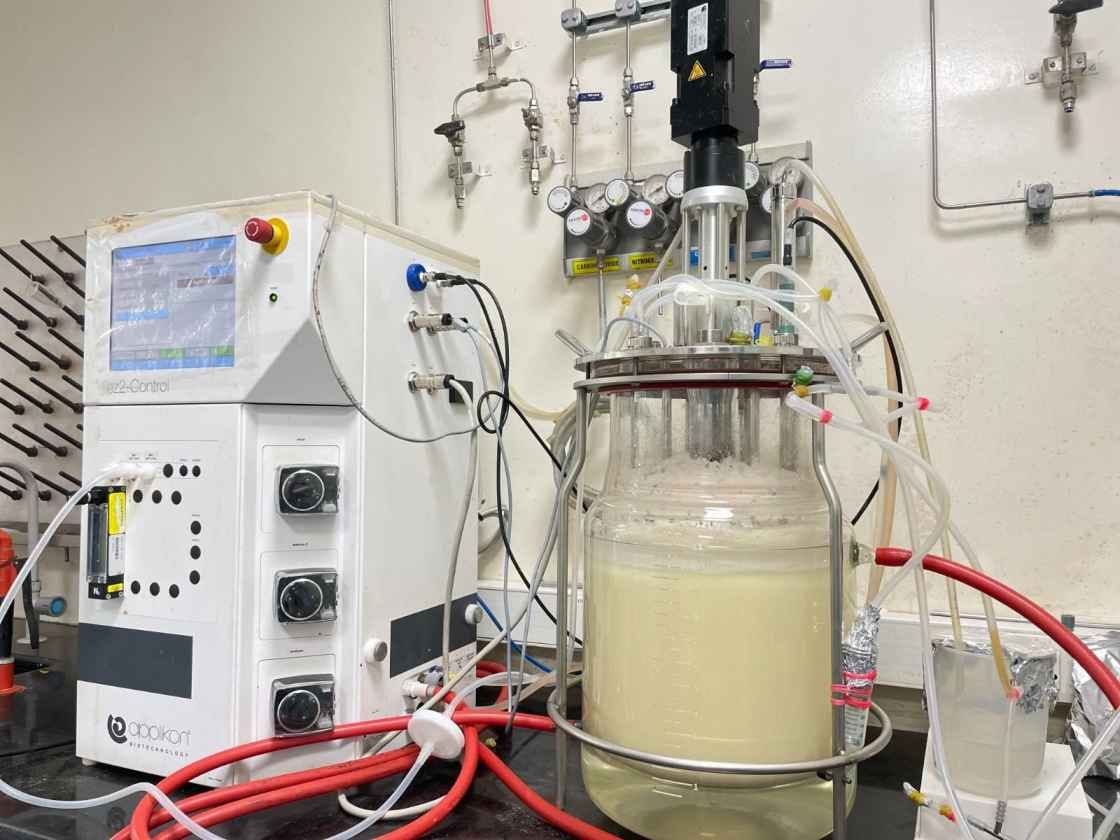
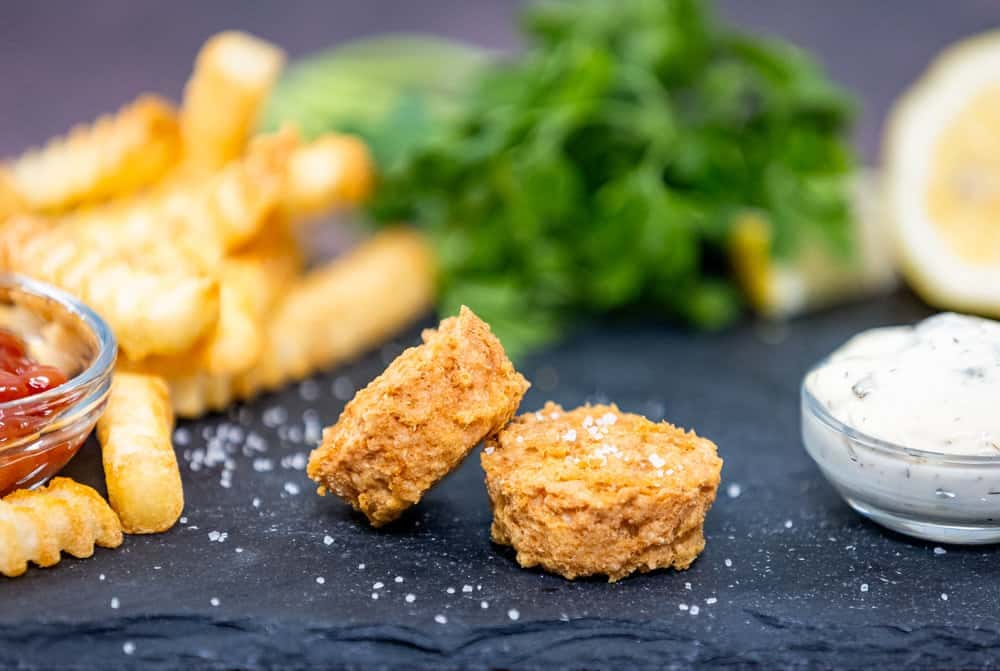
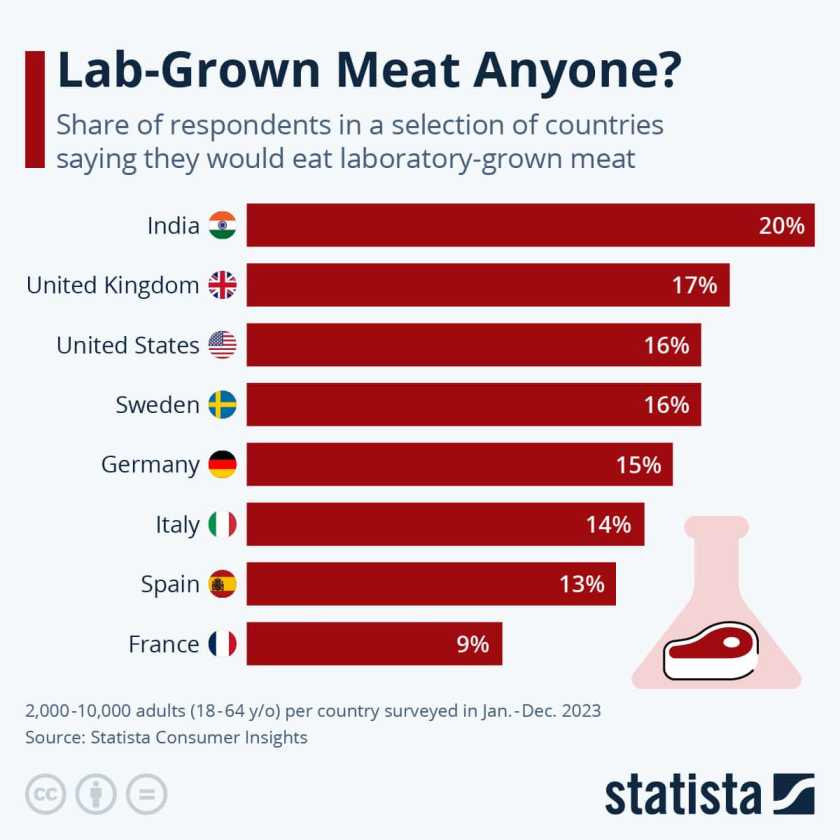
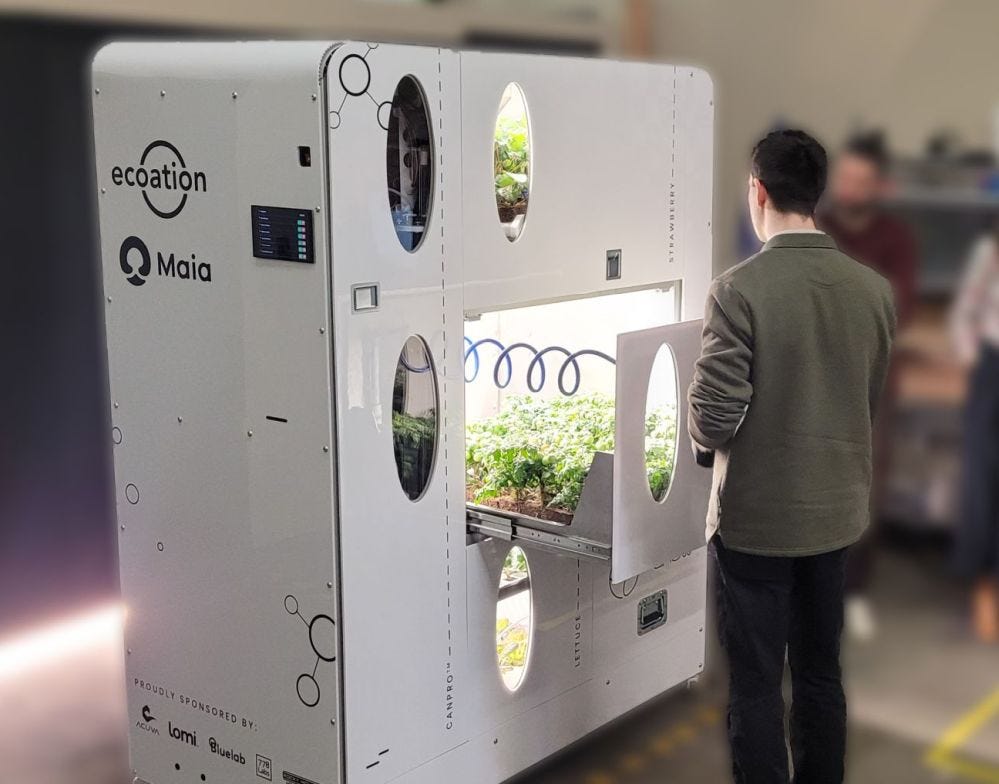
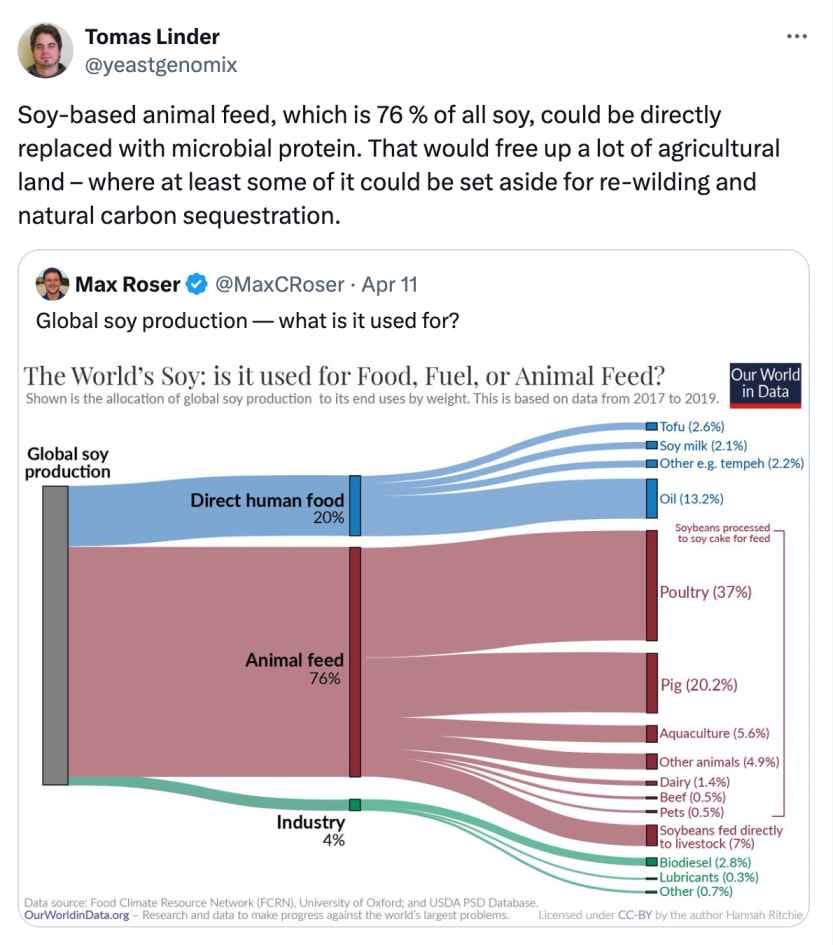


Fabulous issue, as always. You are doing the Lord's work, bro. Thank you for all the work you're putting into helping make the world a better and kinder place ❤️